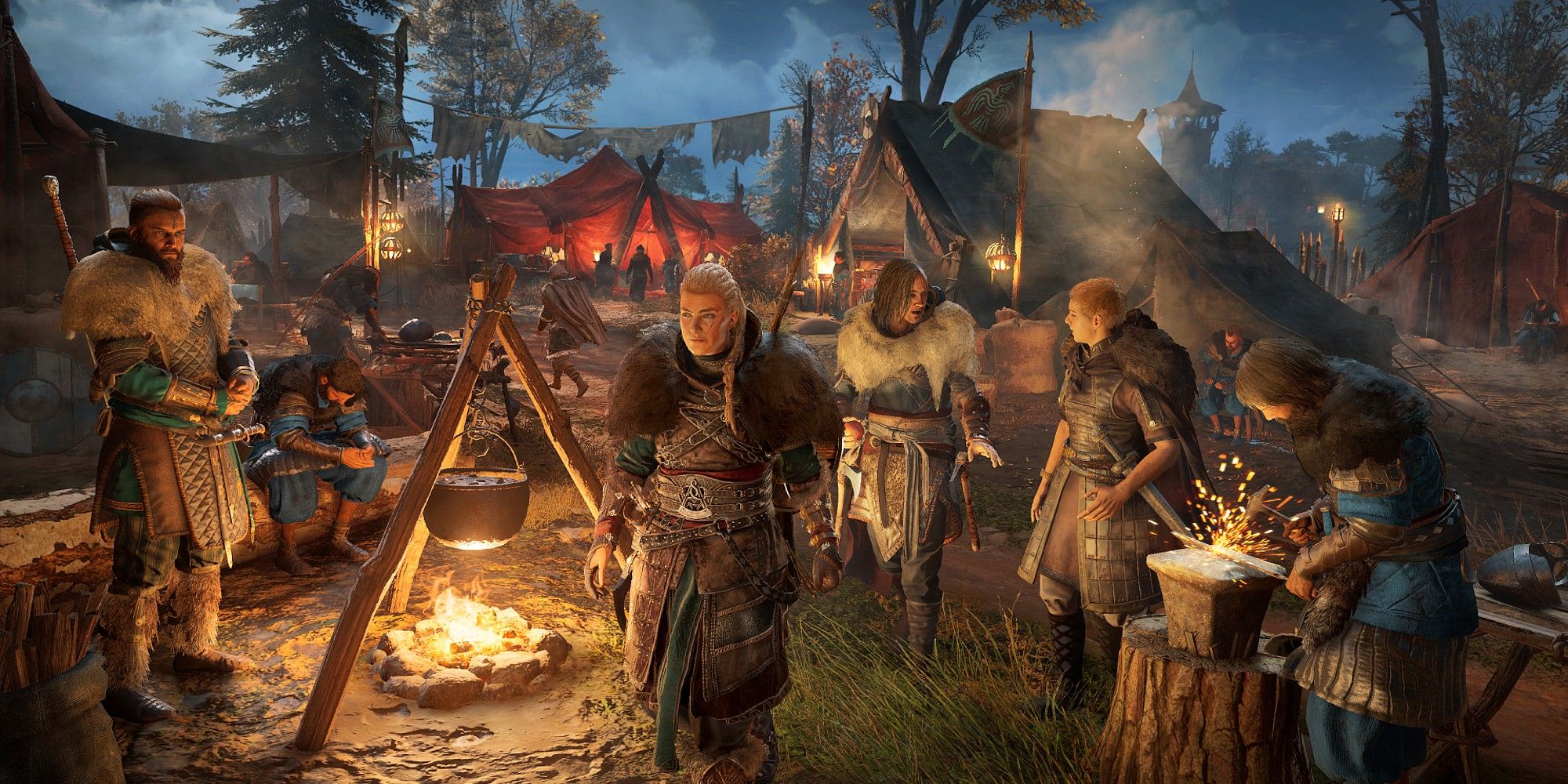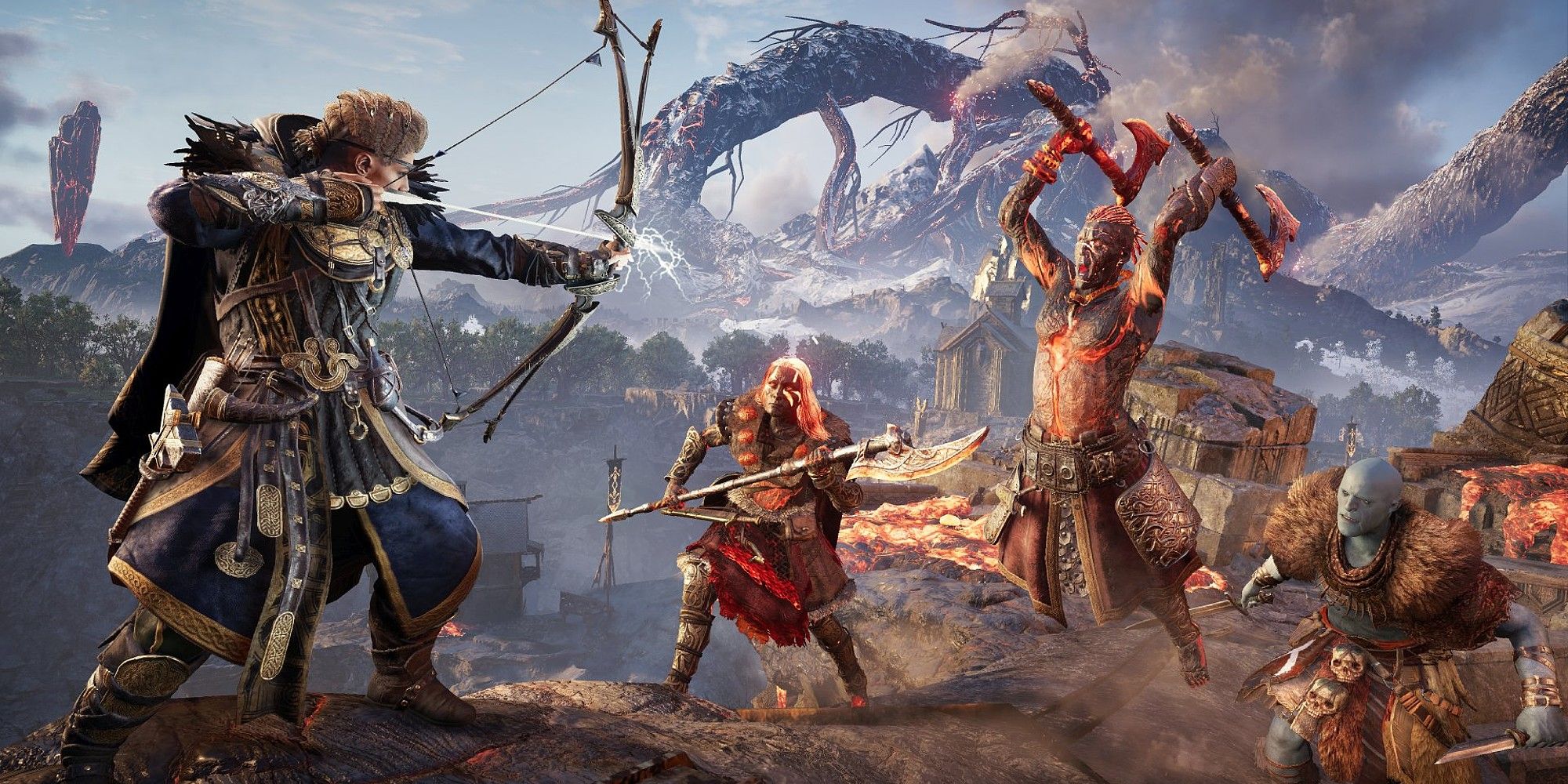Ever since CD Projekt Red perfected the action-RPG formula with The Witcher 3: Wild Hunt back in 2015, I’ve been captivated by the open-world games that followed. Titles like Assassin’s Creed Origins and Odyssey, Horizon Zero Dawn, Ghost of Tsushima, and Days Gone have cost me countless hours. This genre was my ultimate escape, offering a blend of traversal freedom, immersive storytelling, and grindy gameplay, usually boiling down to clearing small chunks of map before moving on to the next portion.
Venturing into distant worlds, exploring maps covered in question marks, finding solace in repetitive yet strangely comforting activities, and using all the gathered resources to enhance my stats and gear—it was almost like a natural evolution from my previous addiction to Diablo-like ARPGs that I eventually grew extremely tired of (sorry, Diablo 4). Little did I know that history was about to repeat itself rather soon. It’s fine to gravitate towards a preferred genre until it becomes an obsession that leads to dissatisfaction.
Assassin’s Creed Valhalla seemed like a no-brainer for me since its reveal. I was thrilled by the promise of embarking on a Viking adventure that would consume hundreds of hours of my life. Looking back, it’s wild to think that I was actually disappointed by Ubisoft’s early claim that Valhalla would be smaller in scope than Odyssey, in response to player feedback about its size. These claims turned out to be completely false, and instead of feeling like I’d been robbed of more content, Valhalla turned out to be an absolute behemoth of a game, sapping the remainder of my passion for the entire genre.
My journey started off strong, with just enough tweaks to make this Origins/Odyssey reskin feel somewhat fresh. Along with its expansions, Valhalla boasted an impressive array of “worlds” to explore, ranging from real-life locations of Britain, France, Ireland, and Norway, to the mythic realms of Svartalfheim, Asgard, and Jötunheimr. The glaring issue is that there’s just an unhealthy amount of filler. Spending nearly 400 hours (twice the time I spent on Odyssey) trying to clear everything Valhalla’s got to offer was a huge mistake. Strangely enough, I never stopped to question why I felt compelled to continue—I just had to do that, because, y’know, I’m supposed to enjoy these types of games.
It wouldn’t be fair to say that I didn’t have fun with Valhalla. It’s a great game, if you play it for 30 or so hours and get to know its core gameplay pillars. Just like its predecessors, it took you on a stunning journey through a captivating era of history, which Ubisoft always manages to capture well. Regardless of your thoughts on the company’s tendency to create massive games, you can’t deny the quality of their world-building. After all, there’s literally thousands of developers involved (Valhalla alone credits almost 6,000 people), and it shows.
However, as I racked up the hours, my feelings shifted from excitement to exhaustion. The major issue here is how painfully identical the structure of each new area of England is [ed: can confirm that all of England basically looks the same], leaving me questioning the purpose of such an expansive yet hollow game. Stretching endlessly, Valhalla started to fall apart for me, shamelessly exposing its inner workings like a theater with bare props. Its array of sketchy characters and their storylines come and go, fading into the background quicker than I can remember any of it.
With each passing moment, I felt less like the hero and more like a mindless machine, a mold processing the available lands and consuming content. It’s like a game was showing me exactly what kind of nonsense I’ve been doing throughout the years. Deep down, I knew I should have stopped long before reaching the end credits, yet I pressed on, oblivious to the toll it was taking on me.
The never-ending filler drained me of any remaining enthusiasm, and became the breaking point that shattered my reflexive appreciation for the genre. I suddenly realized that this style of gameplay no longer brought me joy, and even after taking a long break, my former passion failed to reignite.
Over the past year, I tried my hand at various open-world games, including Immortals Fenyx Rising, Watch Dogs: Legion, Ghost Recon Breakpoint, Forspoken, and Horizon Forbidden West. None of them ever clicked for me, and I bounced off all of them within about 10 hours. There’s just something so well-known about their formula for me at this point, so transparent, as I instantly recognize all the cogs and wheels that made them work.
Instead, I find myself drawn to the formula of ‘semi-open’ games like God of War Ragnarök, Star Wars Jedi: Survivor, or Resident Evil 4. These titles offer more focused and intricately designed environments, while also keeping many of the strengths of classic open-world titles. They present the world as a series of interconnected traversal puzzles and multi-layered levels, emphasizing verticality, and require thinking out of the box to reach specific locations. This approach challenges me to engage with the environment strategically rather than simply sprinting from one chest to another in a matter of seconds. It’s a refreshing change that has reignited my interest in exploring virtual worlds.
Another thing that appeals to me is treating open spaces as decorative backdrops for focused missions, similar to Mafia: Definitive Edition’s Lost Heaven or Cyberpunk 2077’s Night City. These cities are there just to admire the views as you make your way to the next objective. A world so empty it has hardly anything for you to do may seem like a criticism rather than praise, but sometimes, a more directed and focused approach can be just as satisfying as something filled to the brim with side-activities.
I don’t have my sights set on any upcoming open-world titles right now, but I do hope that Ubisoft will inject fresh ideas into future Assassin’s Creed games (or even liberate them from the Assassin’s Creed label). I’m rather keen to see their take on Feudal Japan in Codename Red and the witch trials of the Holy Roman Empire in an even more intriguing Codename Hexe, and I’m pretty sure that these worlds will be gorgeous to behold. I just hope there will be more to it than just a mere collection of markers scattered across vast maps that you have to clear on autopilot pretending that you’re having fun.
Stay connected with us on social media platform for instant update click here to join our Twitter, & Facebook
We are now on Telegram. Click here to join our channel (@TechiUpdate) and stay updated with the latest Technology headlines.
For all the latest gaming News Click Here
For the latest news and updates, follow us on Google News.



